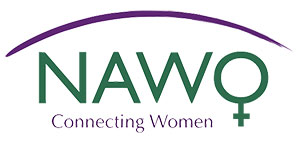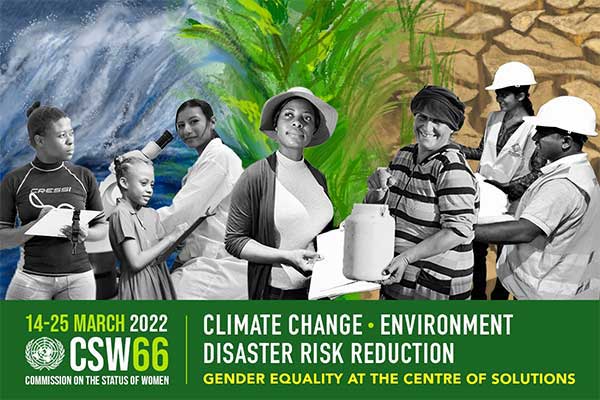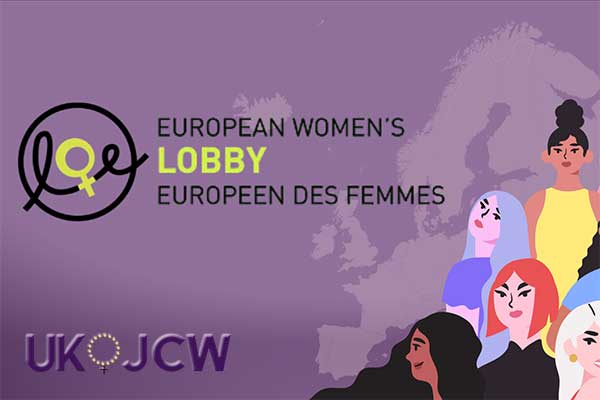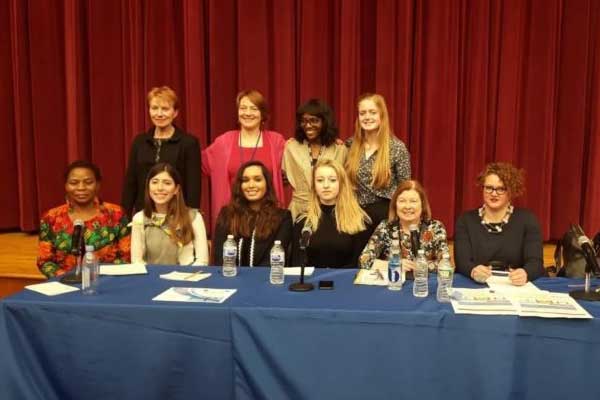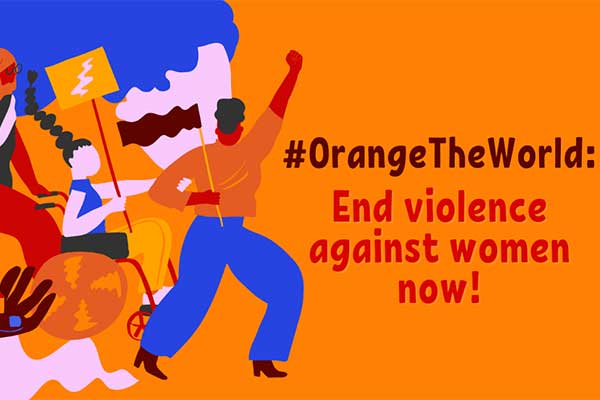By Barbara Cleary
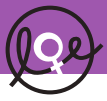
Hello,
I have been the UK Joint Committee on Women (UKJCW) representative at the European Women’s Lobby (EWL) for NAWO for a year now, both on the Board and the Executive Committee.
NAWO is one of the four umbrella organisations in the UKJCW that ensure the entire UK is represented at the European level by coordinating a joint response from our four organisations, across the four nations (NAWO, Engender [Scotland], the Women’s Equality Network Wales, and the Northern Ireland’s Women’s European Platform). This year (2016-2017) NAWO provided myself as a representative on the Board and Executive Committee of EWL to communicate the UK’s position, and here I’d like to report back on what it is we have achieved in this time, for women across Europe.
In gathering my thoughts and sharing with you some of the highlights of our work at EWL I was reminded how much I have learnt on this short journey and the vital role EWL plays in campaigning for women’s rights at EU level; a campaign we are now pursuing on leaving Europe, to ensure the rights we have achieved are protected (and indeed improved!) looking to the future.
Our Approach
The main thrust of our work was to continue implementation of the new Strategic Plan “Together for a Feminist Europe” by developing and implementing strategies to strengthen our ways of working, our financial reliance and sustainability, and to improve member engagement in our collective efforts. We reduced our financial dependency on the European Commission and cultivated a number of new donors and funders.
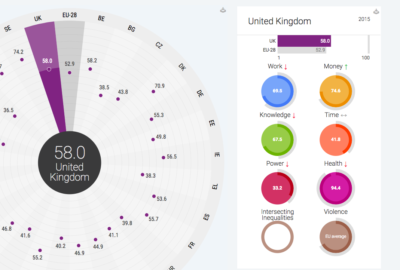 We elected a new Board and Executive Committee, strengthened EWL’s Observatory on Violence Against Women and expanded our thematic working groups. Women in Politics, Feminist Economics and Youth4Abolition are particularly of interest to our work at NAWO. The groups are collaborative and comprise representatives from across the member states who are experts within the field.
We elected a new Board and Executive Committee, strengthened EWL’s Observatory on Violence Against Women and expanded our thematic working groups. Women in Politics, Feminist Economics and Youth4Abolition are particularly of interest to our work at NAWO. The groups are collaborative and comprise representatives from across the member states who are experts within the field.
We regularly ask for better information and statistics to support our equality campaigns across the different equality strands. I was able to join EWL at a strategic planning meeting with the European Institute for Gender Equality in January. We shared ideas for future working including our work programmes, long term priorities and developing statistics to support our work on gender equality including SDGs and intersectionality. Read more about current statistics like the Gender Equality Index (pictured).
CSW
Like many of you EWL was actively involved in the UN Commission on the Status of Women (CSW). We were invited to present the EWL vision for a Europe free from all forms of violence against women and girls at the European Commission Side event on the Istanbul Convention. We also delivered a parallel event “#HerFuture: challanges and opportunities for Girl’s and Young Women’s Economic Empowerment. This was an excellent example of how impactful collaborative working can be. It brought together members of NAWO Young Women’s Alliance (UK), Unizon (Sweden), the European YWCA, WAGGGS, Embrace Dignity (South Africa), and a young survivor of online grooming (UK), who shared their experience, analysis, and hope for the future.
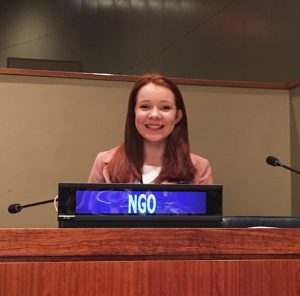
We organised an event sponsored by Belgium and Iceland, with the support of Ireland in the UN headquarters – “The Nordic model on prostitution: a key step to ensure girls and young women economic empowerment”. NGOs from Ireland, Belgium and Lebanon shared their work in support of women trapped in systems of prostitution and trafficking. The abolition of prostitution was the focus of many events and built a momentum for a strong call for the Nordic Model at international level. The Swedish Minister for Gender Equality, at the meeting of the UN Security Council, said “Prostitution can never be regarded as a job; prostitution is always exploitation.”
This year Joanna Maycock (EWL Secretary General) was invited to join the Civil Society Advisory Panel to UN Women’s Executive Director Phumzile Mlambo Ngucka – an opportunity to build another strong partnership.
Where are the Executive Women?
 In November/December 2016, leading activists in the field of women in politics from Europe and the US came together to explore how we can get more women into elected office. We particularly focused on how civil society can put pressure on political parties, as key gatekeepers in getting women elected; to empowering young women to run for office; and discussing the need for structural reform of electoral systems to allow women a fair chance of representation. Work has also begun on developing EWL’s strategy for the 2019 European Parliament elections.
In November/December 2016, leading activists in the field of women in politics from Europe and the US came together to explore how we can get more women into elected office. We particularly focused on how civil society can put pressure on political parties, as key gatekeepers in getting women elected; to empowering young women to run for office; and discussing the need for structural reform of electoral systems to allow women a fair chance of representation. Work has also begun on developing EWL’s strategy for the 2019 European Parliament elections.
96.5% European CEOs are men. Currently we have a proposed EU Directive on Women on Boards so it was very timely to hold an event involving the corporate companies to raise awareness of the need to have men and women equal in economic decision making. EWL and PWC organised a panel event – ‘Where are the Executive Women’. The panel comprised senior executives from the corporate world including Cisco, PWC UK, Legal and General. It was interesting that the event highlighted the need for structural interventions – the gender pay gap being a key issue. It was agreed that as long as women are paid less, their work will be less valued. Pay transparency was identified as an important tool to close the gap. Something we have begun to address in the UK.
The EU Commission has a target to increase women in senior positions to 40% by 2019. EWL co-hosted the first Women of Europe Award Ceremony, celebrating the leadership of European Women in both civil society and public political leadership. The award ceremony raised awareness of the important role women play in Europe. UKJCW submitted nominations.
Violence Against Women
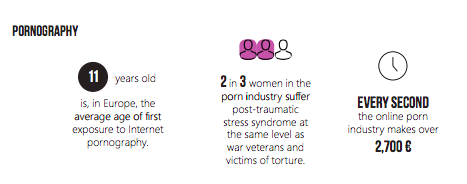
The EU Commission declared 2017 as the year to focus on actions to end violence against women, a long standing request of the Lobby. EWL Observatory was active in the preparations for the public event and demonstration “Loud and United to end violence against women and girls.” We produced a factsheet – “Disrupting the continuum of violence against women and girls in Europe”.
EWL partnered with Wemove.eu to develop an online petition, ‘Rise up against Violence’ asking the EU Council to take action to protect all women and girls from violence and stop what is a pervasive human rights violation. 60,000 signatures were delivered to the Maltese Presidency of the EU Council.
Success at last, in May the Council of the European Union decided to move ahead with the EU’s signature of the Istanbul Convention. This was a direct result of the relentless work of women’s organisations all over Europe. EWL participated in a hearing on the Istanbul Convention organised by the European Parliament. Here in the UK in parallel the IC Change Campaign developed a very successful advocacy strategy towards the ratification of the Istanbul Convention. We are at the final hurdle.
#HerNetHerRights #SayNoToOnlineViolence – we started work on a project to analyse the current state of online violence against women and girls and find innovative solutions to create a safer and more inclusive web for women and girls. This will include an online conference in October, and the production of a resource pack.
In June, we organised our annual General Assembly meeting in Brussels, a moment where nearly 100 feminist activists from across Europe came together to discuss our collective work. This year, we extended the programme to debate strategy, hold meetings of working groups and marked 20 years of action of the Observatory on Violence Against Women under the slogan ’Loud & United’ to end violence against women and girls. The European Women’s Forum, a 5 day event, was bursting with feminist energy and set out action plans for tackling key women’s rights and gender equality issues in Europe during 2017-2018.

We were delighted to welcome two special guests: globally recognised American feminist and activist Gloria Steinem and the European Commission’s First Vice President Frans Timmermans. Google Europe hosted an intimate conversation between Joanna Maycock and Gloria Steinem, as part of Google@Thought, a series of events that brings inspiring thinkers to share experiences and views with invited guests. The theme was technology and its impact on social engagement.
The highlight of the European Women’s Forum was the public event ‘Loud and United’ followed by a demonstration. Read press release here.
Campaign Against Human Trafficking
EWL continued its hard fought campaign against trafficking. Our main focus is on trafficking for sexual exploitation, which is the most prominent form of trafficking in the EU. The overwhelming majority of victims of sex trafficking are women and girls. We strongly believe that strong EU action focusing on sex trafficking would substantially contribute to ending this pervasive violation of human rights and would send a clear message that human beings are not for sale. We are part of and support the Brussels’ Call ‘Together for a Europe free from prostitution’. We continued our work to campaign to raise awareness on the reality of prostitution and sex trafficking and contribute to the achievement of abolitionist policies to combat sex trafficking and realise women’s and girls’ human rights.
As members of the EU Civil Society Platform against Trafficking in Human Beings, we welcomed the consultation process launched by the European Commission to gather civil society feedback on the top priorities that need to be addressed in the new EU Strategy on trafficking.
The Youth4Abolition ha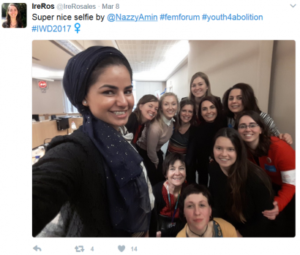 s members and partner youth organisations from Portugal, Sweden, France, Italy, the UK (including Northern Ireland), Ireland, Austria, Norway, Lithuania/Germany. NAWO YWA is actively involved in the group. The group shares a strong vision of a young voice for the abolition of prostitution. They worked on the root causes for youth sexual exploitation: sexual violence, economic/family precariousness, refugee/migration status, rape culture. After a training session about advocacy, the group met with more than 10 MEPs, conveying their messages on sexual exploitation and gaining their support. You can read a blog post here all about Youth4Abolition by Abbie Osmond, NAWO YWA delegate, who we enabled to take part.
s members and partner youth organisations from Portugal, Sweden, France, Italy, the UK (including Northern Ireland), Ireland, Austria, Norway, Lithuania/Germany. NAWO YWA is actively involved in the group. The group shares a strong vision of a young voice for the abolition of prostitution. They worked on the root causes for youth sexual exploitation: sexual violence, economic/family precariousness, refugee/migration status, rape culture. After a training session about advocacy, the group met with more than 10 MEPs, conveying their messages on sexual exploitation and gaining their support. You can read a blog post here all about Youth4Abolition by Abbie Osmond, NAWO YWA delegate, who we enabled to take part.
Other key activities included an event co-organised with MEP Malin Björk – a breakfast discussion with Kat Banyard from the UK and a member of Youth4Abolition who presented her book ‘Pimp State’ and her work on the sex industry to MEPs, assistants and NGOs.
EWL members continued to be active and organised several public events to bring their abolitionist voices at national level. As we know in Ireland the Sexual Offences Bill was adopted and Ireland joined the group of countries implementing the Nordic model. In March, the European Network of Migrant Women was successful initiating a joint letter to the Scottish National Party (gathering 82 signatures), which led to the adoption by the SNP of an abolitionist position.
EWL took part in the Second World Congress against the Sexual Exploitation of Women and Girls, which brought together the new generation of abolitionist leaders from France, Sweden, India, Spain, Canada, and Lebanon, who shared their vision of a world free from prostitution, where the voices of young people would be part of the global conversation to end sexual exploitation.
Refugee Women
At the GUE Feminist Forum in March EWL was invited to speak in a panel on refugee women, a panel on prostitution, and EWL Youth4Abolition members spoke at a press conference organised by MEP Malin Björk in the European Parliament. Two young women wrote a blog post about their experience, and one told their experience in beautiful drawings.
The Women’s Refugee Commission (WRC) quote – “While all of these refugees face risks, women and girls especially have experienced sexual assault, extortion, exploitation and rights violations at every stage of their traumatic journey – they include single women travelling alone, female-headed households, pregnant women, adolescent girls, unaccompanied minors and women with disabilities.”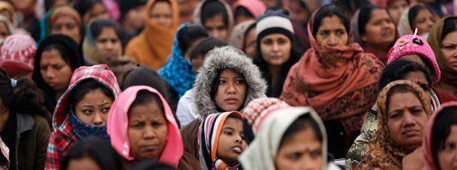
In June 2016, EWL partnered with the WRC to launch #WomensVoices, a campaign to raise awareness of the situation facing the women and girls in Europe fleeing conflict. The aim was to influence decision-makers, through a series of recommendations, events, and members’ networking across Europe, to put violence against refugee women on the European political agenda. From Conflict to Peace? was published which included building transit centres in a gender-sensitive manner, access to reproductive and sexual health and rights, a global approach to the prevention of and response to violence, and empowering women and girls as agents of change. The Lobby and its members have campaigned and applied pressure on European Council and EU commissioners asking for a “clear EU response” to the rights of female refugees. From the responses received we believe the matter is being taken seriously. EWL #womensvoices project received a lot of attention throughout Europe: EWL was asked to present it in Belgium, Italy, Austria, Portugal, Denmark and in the European Parliament in March 2017. In May an EWL member Mina Jaf (founder of Women’s Refugee Route, and member of ENoMW) spoke at the UN.
Sexual Health and Reproductive Rights (SRHR)
EWL is a member of High Ground the Alliance for Choice and Dignity in Europe. We continued to support its members and the women’s movement against attacks on SRHR in Europe. To share a few examples – Maltese members were successful in making free access to the morning after pill. EWL members in Slovenia mobilised to keep the right to free contraceptives and EWL sent a letter to the Polish Government expressing our deep concern about the proposal to restrict access to abortion and maternal health in Poland to.
Together with IPPF-EN, we organised a workshop on sexuality education during the European Week of Action for Girls. More than 30 young participants attended the event. Their input contributed to a joint EWL-IPPF briefing on comprehensive sexuality education. We also contributed to World Health Organisation Regional Office for Europe consultation meetings on their Regional Strategy on women’s health – our particular focus was on sexual reproductive health and rights.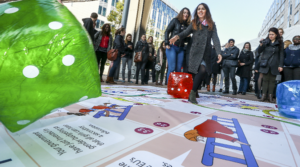
Purple Pact – A Feminist Economy
EWL responded to the Public consultation on the European Pillar of Social Rights emphasising the need to ensure a gender perspective throughout the whole Pillar. Detailed proposals Included: a care deal for Europe, including work life balance measures, social rights are individual rights, – closing the gender gaps with regards to pay and income and boosting the European Social Model: Looking towards the future – New pathways for a European Social Protection and Social Security Strategy.
We know austerity measures have widened women’s inequality with men. The burden of responsibility for the financial crisis has rested with women. They have reduced pay, pensions, and services. Women are already economically unequal, because – among many things – the gender pay gap, the unequal caring roles that women assume, and the way that social security systems and housing programmes are designed.
As part of our ongoing work on women’s economic independence the Lobby launched its Campaign ‘Together we can make it happen, Equal Pension Rights for Women Now!’ The campaign draws attention to the blatant discrimination that women face as they age. The accompanying video clip was subsequently translated into Spanish and, together with the campaign messages, was presented by our European-wide member CESI, at a press conference in Madrid in May 2017. Watch the video. The campaign was presented to two Committees of the European Trade Union Confederation (ETUC): the women’s committee and the social protection committee.
 EWL’s vision for a feminist Europe includes a vision of a feminist economy – we call it a purple pact.
EWL’s vision for a feminist Europe includes a vision of a feminist economy – we call it a purple pact.
Our feminist economics working group met in October 2016 to begin work developing the model and Purple Pact. The principles for the model are truly transformative. We are exploring within the group the principles of basic income including gender tax justice. The working group will collaborate to refine our proposals for the broad content of the Purple Pact. Over the coming years the EWL will use the Pact to sign up those with power and influence over the economy to make change happen.
The Need for Collaborative & Creative Working
EWL and Women in Development Europe+ (WIDE+) organized a successful two-day international conference “Movements, Borders, Rights? Feminist Perspectives on Global issues in Europe”. Designed to develop a consistent feminist analysis on global issues faced by Europe – 200 civil society, women’s rights experts, activists and policy makers came together to broaden their understanding of the current situation in Europe from a feminist perspective. Workshops explored the ways in which social justice, gender equality and women’s rights are affected, sacrificed or squeezed. The voices of migrant and refugee women were prominent in the debates. The conference emphasised the need to build trans-sectoral alliances with different social movements. It confirmed the need that as feminists, we must be proactive, setting feminist standards, inclusive and participatory and promote economic alternatives to create a world based on equal rights
This year, we undertook our ground-breaking WEstart study on women-led social enterprise in two new countries: Belgium and Luxembourg, increasing the visibility of women’s leadership in social enterprise, and demonstrating that women are at the forefront of a new movement for sustainable business. We also premiered a new short video explaining the outcomes of our 2015 EU-level project, which was premiered at the Impact 2 Social Enterprise conference in Paris in front of two thousand social enterprise stake holders.
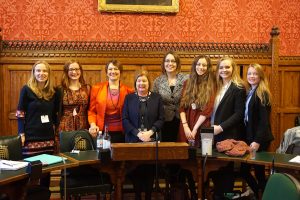
In 2016 we held our second AGORA young feminist summer school, bringing 50 women under the age of 30 together for three days of invigorating, and participatory training on feminist activism and leadership. After participating in the AGORA summer school, the participants have gone on to contribute to a blog started by the first AGORA alumnae group, and continue their activism through online networking. Some of the UK participants were active in the successful ICChange Campaign to ratify the Istanbul Convention. The young feminist movement is vibrant in Europe and the programme inspires and engages the young women to participate in joint actions. In September we welcomed a great group of young feminist leaders in Brussels for the third AGORA summer school.
